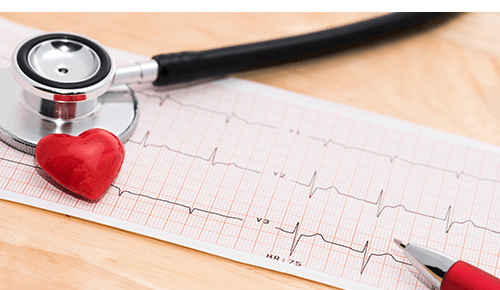The signs of poor heart health and heart attack are common knowledge. You might even be able to recite them by heart:
- Chest pain and tightness.
- Nausea or lightheadedness.
- Shortness of breath.
- Pain in the jaw or left arm.
- Flu-like symptoms or heartburn in women.
But a heart at risk can send other signals that are just as important.
We created this list of symptoms of poor cardiovascular health that might surprise you. We also spoke with OhioHealth cardiologist David Sabgir, MD, to get a doctor’s perspective on some issues that are cause for concern.
Snoring
If you’re “sawing logs” while you sleep, that’s a sign of an obstructed airway. If it’s severe enough that you stop breathing altogether for brief periods, you could have sleep apnea, which places your heart health at great risk. “Sleep apnea is a big one. Untreated sleep apnea with the obesity epidemic is so prevalent,” says Sabgir. “There’s an acronym we use to identify risk factors for sleep apnea called STOP BANG:”
- Snoring
- Tired
- Observed apnea: someone witnessing your breathing stopping during sleep
- Pressure: as in blood, as in high
- BMI greater than 35
- Age greater than 50
- Neck size greater than 16 ½ inches
- Gender: Male
“If you have four of those, you’re at high risk. We see sleep apnea hand-in-glove with atrial fibrillation, vascular blockages and hypertension.”
Poor dental hygiene
Regular brushing and flossing can do more than prevent cavities and bad breath, it can also protect your heart. Gum disease can lead to inflammation, causing harmful bacteria to enter your bloodstream and make their way toward your heart, potentially damaging its valves. If you’re having problems with red, swollen gums, make an appointment with your dentist.

Leg pain
If your legs ache when you walk, it could be a sign of a circulatory problem. Low blood flow through your legs is a symptom of peripheral artery disease, and that pooled blood in your lower extremities can lead to clots that can break loose and cause life-threatening damage to your heart and lungs. If you’re having issues with persistent leg pain, talk to your primary care doctor about seeing a vascular specialist. They may decide it’s worth taking a closer look at your heart as well.
Depression
Sabgir says, if you’ve had a cardiovascular event like a heart attack or a stroke, all is not lost. Focusing on exercise and diet in coordination with your physician can significantly improve your quality of life. But many people find facing the day to be a challenge all its own.
“Psychologically, people often experience a setback with heart disease that can lead to a grieving period of three to four months, or even longer. Having a heart attack or stroke is a lot to unpack emotionally. It can cause depression, which can affect your relationships with other members of your family, interfere with your medication compliance, and lead to a lack of activity that puts you at risk for yet another heart attack or stroke.”
Sabgir says it’s important to let your primary care doctor or cardiologist know if you’re struggling with depression so they can work with you or connect you to counselors or specialists who can help.
Erectile dysfunction
If you’re concealing a problem with sexual performance, you could also be concealing a problem with your heart. Erectile dysfunction, or ED, can be an early warning sign of heart disease, particularly low blood flow caused by plaque buildup in your blood vessels, or issues with the smooth muscle lining your arteries and veins. If you’re having concerns in the bedroom, have a conversation with your primary care doctor. There are a variety of medications that can help with ED, but you also want to be sure your heart health is not at risk.
Poor sleep habits
Sleep research is drawing a clearer connection between a healthy sleep routine and a healthy heart. Poor sleep is tied to obesity, high blood pressure and diabetes, but researchers have also identified higher levels of stress hormones and inflammatory agents in the blood of people with too little sleep, which can be taxing on your ticker. So do your best to maintain a successful sleep regimen. If you’re still having trouble, your doctor can recommend tests and treatments for sleep disorders.
Diastolic dysfunction
Sabgir says there are two types of heart failure: systolic and diastolic. “Systolic is the one we often think of when we think of heart failure, where the heart doesn’t squeeze as well. Diastolic is where the heart doesn’t relax as well. Obesity, hypertension, diabetes and a sedentary lifestyle can make your heart muscle stiff.”
The health of your heart is often measured by how much blood it pushes out with each beat, called the ejection fraction, or EF. Because EF can be normal in diastolic dysfunction, it can go undetected in some tests. Sabgir says other symptoms can offer clues. “If you have shortness of breath at rest, swelling in your legs and high blood pressure, don’t sweep it under the rug. They can be early signs of heart failure. It’s worth having a conversation with a cardiologist.”
If you think your body is trying to tell you something about your heart health, listen. OhioHealth has primary care doctors and cardiologists all across central Ohio, ready to help.









